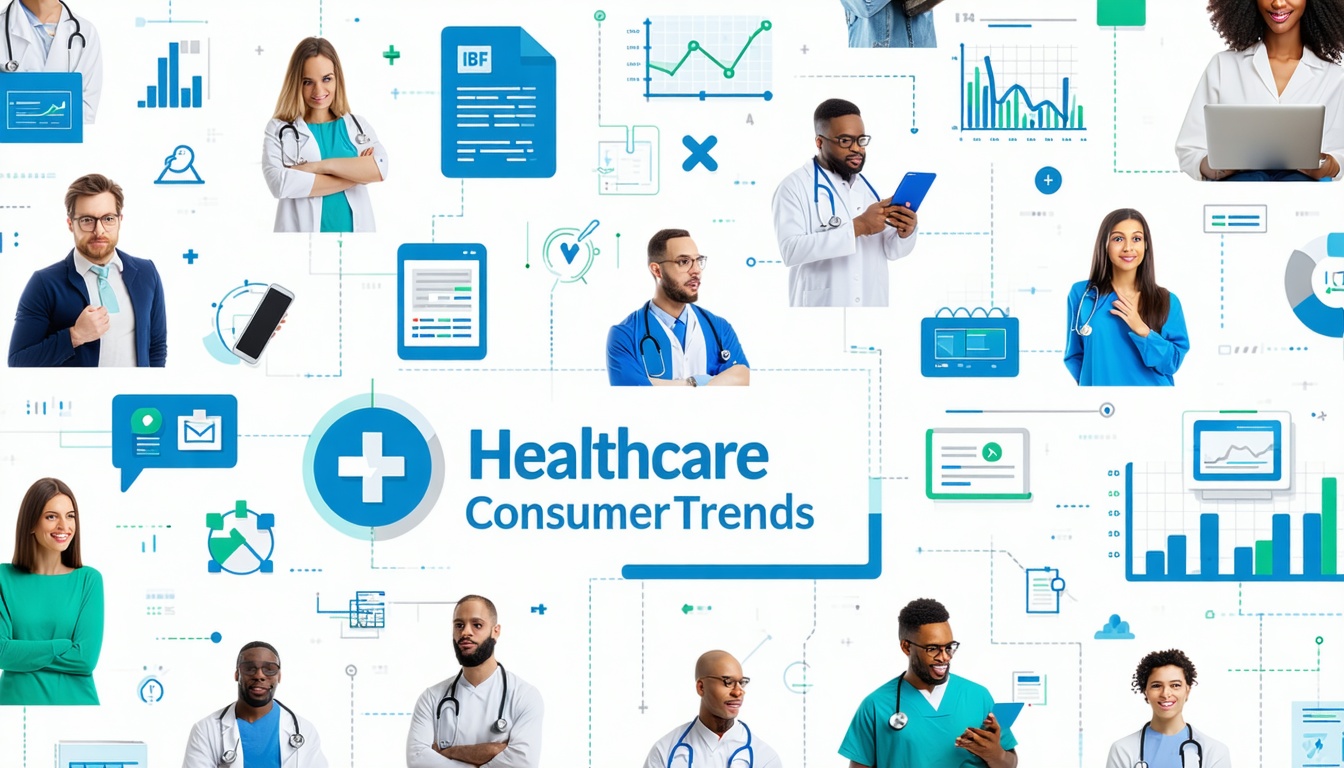Current Landscape of Healthcare
The healthcare landscape is continuously evolving, particularly in the realm of private healthcare. Understanding these changes is essential for young professionals considering their options in this sector.
Overview of Private Healthcare
Private healthcare offers a range of services that can complement or serve as an alternative to public healthcare systems. It often provides quicker access to medical services, a wider selection of specialists, and more personalized care. The growth of private healthcare has been influenced by several factors, including rising patient expectations and the demand for more tailored healthcare experiences.
| Key Features of Private Healthcare | Description |
|---|---|
| Accessibility | Shorter wait times for appointments and procedures. |
| Choice | Patients can select their healthcare providers and specialists. |
| Customization | Services can be tailored to individual health needs. |
| Quality | Often perceived as providing higher quality care due to advanced facilities and technologies. |
As private healthcare continues to expand, it is crucial for consumers to stay informed about the latest trends that could impact their care.
Importance of Staying Informed on Healthcare Trends
Staying updated on healthcare consumer trends is vital for making informed decisions regarding personal health and wellness. Awareness of emerging trends can help individuals navigate the complexities of private healthcare, ensuring they choose options that best suit their needs.
Some significant trends to watch include:
- Telehealth Services: The rise of virtual consultations and remote monitoring.
- Personalized Care: Increased focus on customized treatment plans based on individual health data.
- Mental Health Integration: Growing recognition of mental health as a critical component of overall health.
By understanding these trends, young professionals can better assess their healthcare options and advocate for their needs. For more insights into the evolving healthcare landscape, explore our articles on healthcare industry trends and emerging trends in healthcare industry.
Telehealth Revolution
The telehealth revolution is reshaping the way healthcare is delivered, particularly for young professionals considering private healthcare. This shift towards virtual care has gained momentum, offering new opportunities and challenges in accessing medical services.
Rise of Telemedicine Services
Telemedicine services have seen significant growth in recent years. Many healthcare providers now offer virtual consultations, allowing patients to connect with doctors from the comfort of their homes. This trend has been driven by advancements in technology and the increasing demand for convenient healthcare options.
| Year | Percentage of Patients Using Telemedicine |
|---|---|
| 2019 | 11% |
| 2020 | 46% |
| 2021 | 30% |
| 2022 | 25% |
The data shows a peak in telemedicine usage during 2020, likely due to the COVID-19 pandemic, which forced many to seek remote healthcare solutions. As the healthcare landscape continues to evolve, telemedicine remains a viable option for many patients.
Benefits and Limitations of Telehealth
Telehealth offers several advantages, making it an appealing choice for young professionals. Some of the key benefits include:
- Convenience: Patients can schedule appointments without the need to travel, saving time and reducing stress.
- Accessibility: Telehealth can provide access to specialists who may not be available locally.
- Cost-Effectiveness: Virtual visits can often be less expensive than in-person appointments, reducing overall healthcare costs.
However, there are also limitations to consider:
- Technology Barriers: Not all patients may have access to the necessary technology or internet connectivity for telehealth services.
- Limited Physical Examination: Some medical conditions require in-person assessments, which telehealth cannot provide.
- Insurance Coverage: Not all insurance plans cover telehealth services, which may lead to unexpected costs.
Understanding these benefits and limitations is crucial for young professionals as they navigate their healthcare options. For more insights into the evolving landscape of healthcare, explore our articles on healthcare industry trends and healthcare technology trends.
Personalized Healthcare Experiences
The shift towards personalized healthcare experiences is transforming how individuals receive medical care. This trend emphasizes tailored treatment plans and the effective use of health data to enhance patient outcomes.
Customized Treatment Plans
Customized treatment plans are becoming increasingly common in private healthcare. These plans are designed to meet the unique needs of each patient, taking into account their medical history, lifestyle, and preferences. By focusing on individual characteristics, healthcare providers can create more effective strategies for managing health conditions.
| Key Features of Customized Treatment Plans | Benefits |
|---|---|
| Individualized assessments | Improved patient satisfaction |
| Targeted therapies | Enhanced treatment effectiveness |
| Ongoing monitoring | Better health outcomes |
Patients benefit from a more engaged approach to their healthcare, as they are actively involved in decision-making processes. This personalized approach not only fosters a stronger patient-provider relationship but also encourages adherence to treatment protocols.
Utilization of Health Data for Personalization
The utilization of health data plays a crucial role in personalizing healthcare experiences. With advancements in technology, healthcare providers can collect and analyze vast amounts of data to inform treatment decisions. This data-driven approach allows for more precise interventions tailored to individual needs.
| Types of Health Data Used | Purpose |
|---|---|
| Genetic information | Identifying predispositions to certain conditions |
| Lifestyle data | Understanding habits that affect health |
| Medical history | Tailoring treatments based on past responses |
By leveraging health data, providers can identify trends and patterns that inform personalized care strategies. This not only enhances the quality of care but also aligns with the growing demand for transparency and accountability in the healthcare system. For more insights on the evolving landscape, explore our article on healthcare industry trends.
As young professionals consider private healthcare options, understanding these personalized healthcare trends can empower them to make informed decisions about their care.
Mental Health Focus
The focus on mental health has become increasingly prominent in recent years. Young professionals considering private healthcare should be aware of the growing emphasis on mental well-being within healthcare systems.
Increasing Awareness and Support
There has been a significant rise in awareness regarding mental health issues. Campaigns and initiatives aimed at reducing stigma have encouraged individuals to seek help and support. This shift in perception has led to a greater demand for mental health services, which is reflected in various healthcare consumer trends.
| Year | Percentage of Adults Reporting Mental Health Concerns |
|---|---|
| 2018 | 18% |
| 2019 | 20% |
| 2020 | 25% |
| 2021 | 30% |
The data indicates a steady increase in the number of adults acknowledging mental health concerns. This trend highlights the necessity for healthcare providers to adapt and offer comprehensive mental health support.
Integration of Mental Health Services in Healthcare Plans
Healthcare plans are increasingly integrating mental health services into their offerings. This integration ensures that individuals have access to necessary resources, including therapy, counseling, and support groups.
Many private healthcare plans now include mental health coverage as a standard feature, recognizing the importance of holistic care. This approach not only addresses physical health but also emphasizes emotional and psychological well-being.
| Type of Service | Percentage of Plans Offering Coverage |
|---|---|
| Therapy Sessions | 85% |
| Counseling Services | 78% |
| Support Groups | 65% |
| Medication Management | 70% |
The table above illustrates the percentage of healthcare plans that provide coverage for various mental health services. This trend reflects a commitment to improving overall health outcomes by addressing mental health needs.
Young professionals should consider these trends when evaluating private healthcare options. The integration of mental health services into healthcare plans signifies a positive shift towards comprehensive care, ensuring that individuals receive the support they need for both their physical and mental well-being. For more insights into the evolving landscape of healthcare, explore our articles on healthcare industry trends and emerging trends in healthcare industry.
Wellness and Preventive Care
The healthcare landscape is increasingly shifting towards a focus on wellness and preventive care. This trend is particularly relevant for young professionals considering private healthcare options. Understanding this shift can help individuals make informed decisions about their health and wellness.
Shift Towards Preventive Healthcare
Preventive healthcare emphasizes the importance of proactive measures to maintain health and prevent diseases before they occur. This approach is gaining traction as more individuals recognize the long-term benefits of prevention over treatment.
Recent studies indicate that investing in preventive care can significantly reduce healthcare costs and improve overall health outcomes. The following table illustrates the potential cost savings associated with preventive healthcare measures:
| Preventive Measure | Estimated Annual Savings per Person |
|---|---|
| Regular Health Screenings | $500 |
| Vaccinations | $300 |
| Lifestyle Counseling | $400 |
| Chronic Disease Management | $600 |
By prioritizing preventive care, individuals can not only enhance their quality of life but also reduce the financial burden associated with chronic illnesses. For more insights on the broader implications of these trends, refer to our article on healthcare industry trends.
Emphasis on Wellness Programs and Services
In addition to preventive healthcare, there is a growing emphasis on wellness programs and services. These programs often include fitness initiatives, nutritional counseling, and mental health support, all designed to promote a holistic approach to health.
Many private healthcare providers are now offering comprehensive wellness packages that cater to the diverse needs of their clients. These packages may include:
- Fitness classes and personal training sessions
- Nutritional workshops and meal planning
- Stress management and mindfulness programs
- Access to mental health resources
The following table highlights the types of wellness services commonly offered by private healthcare providers:
| Wellness Service | Description |
|---|---|
| Fitness Programs | Group classes, personal training, and gym access |
| Nutritional Counseling | One-on-one sessions with dietitians and meal planning |
| Mental Health Support | Counseling services and stress management workshops |
| Health Assessments | Regular check-ups and health screenings |
As young professionals navigate their healthcare options, understanding the importance of wellness programs can lead to better health outcomes and a more balanced lifestyle. For further exploration of how these trends are shaping the healthcare landscape, check out our article on healthcare marketing trends.
Technology Integration in Healthcare
The integration of technology in healthcare is transforming the way services are delivered and experienced. Young professionals considering private healthcare should be aware of the latest advancements in health-tech solutions and the impact of artificial intelligence (AI) and data analytics on their care.
Adoption of Health-Tech Solutions
Health-tech solutions are becoming increasingly prevalent in the healthcare landscape. These technologies include telehealth platforms, mobile health applications, and electronic health records (EHRs). The adoption of these solutions is driven by the need for improved patient engagement, streamlined processes, and enhanced access to care.
| Health-Tech Solution | Description | Benefits |
|---|---|---|
| Telehealth Platforms | Virtual consultations with healthcare providers | Increased accessibility, convenience, and reduced travel time |
| Mobile Health Apps | Applications for tracking health metrics and managing conditions | Empowerment of patients, real-time data access, and personalized care |
| Electronic Health Records (EHRs) | Digital records of patient health information | Improved coordination of care, reduced errors, and enhanced data sharing |
The rise of these technologies is reshaping the healthcare experience, making it more efficient and patient-centered. For more insights on the latest advancements, refer to our article on healthcare technology trends.
Impact of Artificial Intelligence and Data Analytics
Artificial intelligence and data analytics are playing a crucial role in enhancing healthcare delivery. AI algorithms can analyze vast amounts of data to identify patterns, predict outcomes, and support clinical decision-making. This technology is particularly beneficial in areas such as diagnostics, treatment recommendations, and patient monitoring.
| AI Application | Description | Impact |
|---|---|---|
| Predictive Analytics | Using historical data to forecast patient outcomes | Improved patient care and resource allocation |
| Natural Language Processing | Analyzing unstructured data from clinical notes | Enhanced documentation and streamlined workflows |
| Machine Learning | Algorithms that learn from data to improve accuracy over time | Increased efficiency in diagnostics and treatment plans |
The integration of AI and data analytics not only enhances the quality of care but also contributes to cost savings and operational efficiency. For further exploration of these trends, check out our article on healthcare analytics trends.
Understanding these technology integration trends is essential for young professionals navigating the private healthcare landscape. By staying informed, they can make better decisions regarding their healthcare options and experiences.












0 Comments